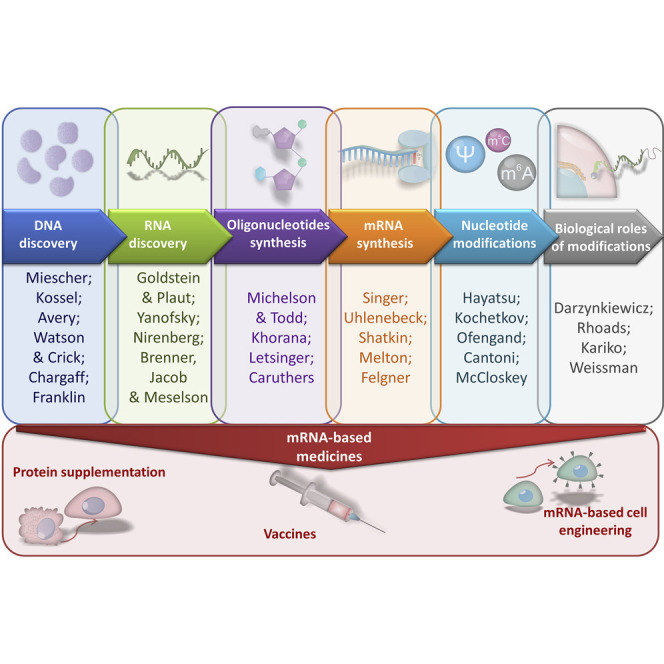- Record: found
- Abstract: found
- Article: not found
The legacy of mRNA engineering – a line-up of pioneers for the Nobel Prize

Read this article at
Abstract
The mRNA is like Hermes, which delivers the genetic code to the cellular construction sites, so it has long been of interest, but only to a small group of scientists, and only demonstrating its remarkable efficacy in COVID-19 vaccines allowed it to go out into the open. Therefore, now is the right timing to delve into the stepping stones that underpin this success and pay a tribute to the underlying scientists. From this perspective, advances in mRNA engineering have proved crucial to the rapidly growing role of this molecule in healthcare. The development of consecutive generations of cap analogs, including anti-reverse cap analog (ARCA) significantly boosted translation efficacy and maintained an enthusiasm for mRNA research. Nucleotide modification to protect mRNA molecules from the host's immune system, followed by finding appropriate purification and packaging methods, were another links in the chain capable to drag the medical breakthrough. Currently, vaccines are the central area of mRNA research, but it will reach far beyond COVID-19. The supplementation of missing or abnormal proteins is another large field of mRNA research. Ex vivo cell engineering and genome editing, has been expanding recently. Thus, it is time to recognize mRNA pioneers while building upon their legacy.
Graphical abstract
Abstract
The mRNA science culminated with a widespread application of COVID-19 vaccines. But at the core of this success is more than half a century of research. Therefore, it is of utmost importance to pay tribute to pioneers, who made early engineering efforts, by awarding them the Nobel prize.

